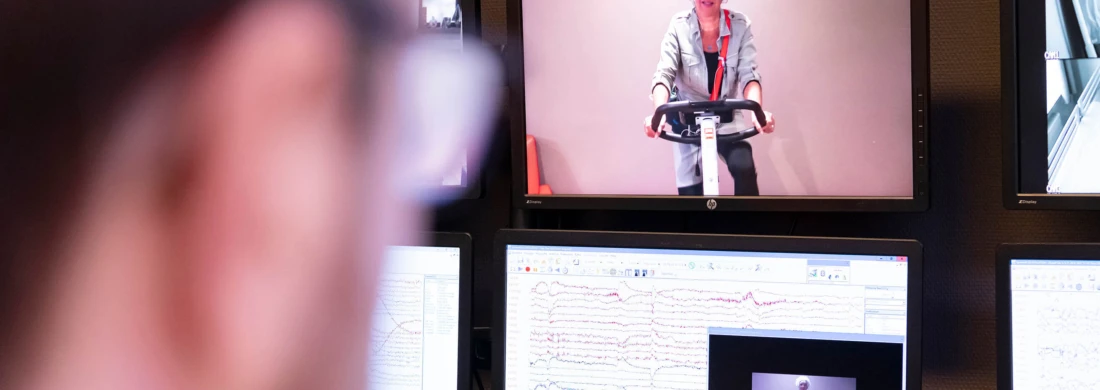Patients with PNES may experience seizures that closely resemble epileptic seizures but are not actually epilepsy. These episodes do not involve electrical discharges in the brain, nor are they caused by other bodily dysfunctions, such as fainting or heart rhythm disorders.
In most cases, PNES is triggered by emotional and/or psychosocial factors, which vary from person to person. Often, multiple causes play a role, and individuals may not be fully aware of these emotional factors or their impact.
PNES episodes can look exactly like epileptic seizures, making it challenging even for doctors to distinguish between the two. This is why additional testing, such as an EEG, is usually required. It becomes even more complex when a patient experiences both epileptic and psychogenic non-epileptic seizures.
Our PNEA Team
At the Academic Center for Epileptology Kempenhaeghe/Maastricht UMC+, a specialized team provides care for children and adults with psychogenic non-epileptic seizures (PNES). The team consists of a neurologist/epileptologist, a clinical psychologist/psychotherapist, and a social worker/system therapist.
PNEA is part of paroxysmal functional neurological disorders (FND). This type of seizure occurs in 10 to 30 percent of our patients.
Diagnosis and Advice
The PNES team assists in establishing an accurate diagnosis and explaining what is happening. They also provide advice on (follow-up) treatment. Treatment preferably takes place near your place of residence, as the Academic Center for Epileptology Kempenhaeghe/Maastricht UMC+ does not offer this care directly.
For some individuals, it can be difficult to accept that their seizures are not caused by a physical disorder. However, it is widely recognized that emotions can trigger physical reactions, such as an increased heart rate in a nervous person or headaches in someone experiencing stress or work pressure. Understanding the diagnosis is an essential step in the further guidance of PNES.
Additionally, explaining the diagnosis to others—such as family members or colleagues—can be challenging. The PNES team provides advice on this and offers guidance on how to manage the seizures effectively.
Treatment
Since the cause of PNES seizures is entirely different from epileptic seizures, it is understandable that anti-epileptic medications do not help with PNES, although they may have a short-term effect in some cases. For patients who are already using anti-seizure medication—and who do not have a combination of epileptic seizures and PNES the neurologist will usually recommend gradually reducing these medications.
Because the underlying causes of PNES vary greatly, there is no standard treatment. In some cases, seizures decrease significantly after diagnosis, making further treatment unnecessary. Effective treatment requires commitment and cooperation from both the patient and their parents, partner, or other family members. Identifying the underlying factors generally takes place on an outpatient basis. For long-term treatment of these underlying causes, referral is often necessary to an independent psychologist, general social services, or specialized mental healthcare providers.
